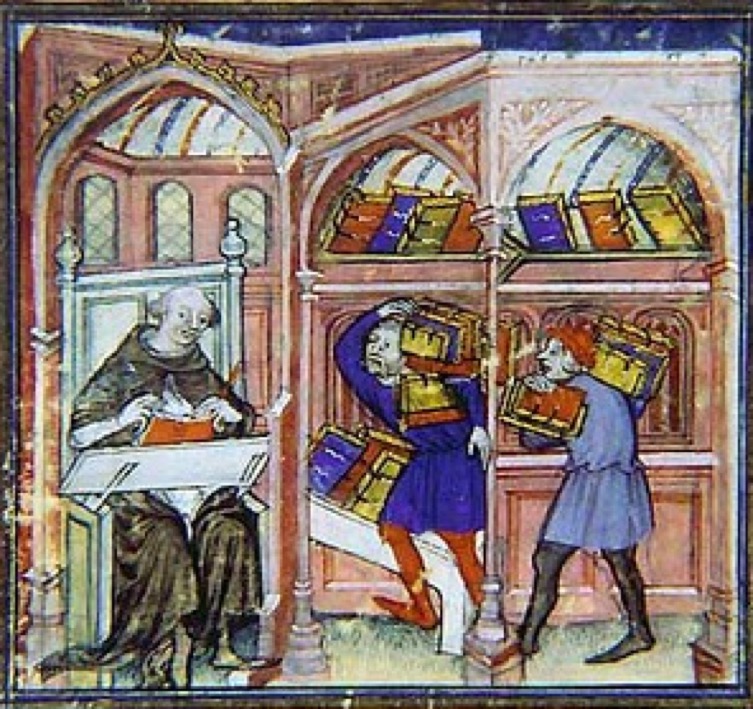However, literary genres are everywhere, not only in philosophical literature. In 1995, I contributed to a volume on indices – another favourite subject – with an article on the question if medieval indices can be considered as a literary genre: “Les index au moyen âge sont-ils un genre littéraire?” (see List of publications, art. 27). This is a tricky question, because the alphabetical index, a useful device at the start, came to be a tool comparable to alphabetical summaries or repertories (such as florilegia). This is the case, for instance, in the hands of Robert Kilwardby, an author who composed not only tables of contents, but also alphabetical indexes to accompany patristic writings, in particular those of Augustine, and others tools, now called concordances, on a corpus of texts, comprising the main works of Augustine, Ambrose, Isidore and Anselm.
One of the chapters of my study entitled A Scholar’s Paradise (see List of publications, Book 23), is dedicated to this kind of tools. The chapter, under the title “Basic Tools of Learning” discusses translations and dictionaries, but also repertories and indexes, a new approach to texts, facilitated by the generalised application of the alphabetical order. Among the repertories one counts of course encyclopaedic works, like the very popular Speculum of Vincent of Beauvais, a work that was in its turn object of an elaborate index made by John Hautfuney.
Vincent of Beauvais at work
I did not work on encyclopaedia and florilegia, but they are surely fascinating works, worth of study and research. Recently a database has been created at the IRHT in Paris, which is dedicated to medieval encyclopaedia: sourcencyme.irht.cnrs.fr
Part of my work on the subject of indexes and other alphabetical tools, translated into German under the title “Funktionen des Alphabets im Mittelalter”, was published in 2006, in a volume on early modern encyclopaedias (see List of publications, art. 54). I also came back on this topic at the occasion of a colloquium in Brussels on Les instruments de travail à l’époque de la Renaissance, with a contribution on “Les instruments de travail au moyen âge », published in the proceedings of the conference in 2010 (see List of publications, art. 63).

Commentaires récents